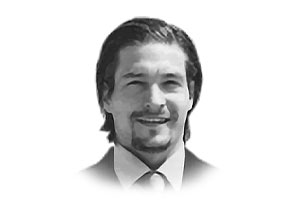Culture of defamation means media is misused all over the world
Arab News, October 19th, 2018
Culture of defamation means media is misused all over the world

The disappearance of the journalist Jamal Khashoggi reflects the dangerous working environment for journalists and the media worldwide. We will probably never know the exact circumstances that caused this disappearance or what happened in other similar cases around the world. The crimes committed against members of the media, which are on the rise, are happening at a time when we hear daily about “fake news” or “media wars,” which are often used by professionals in order to harm and damage individuals, companies and governments. In addition, anonymous individuals often create an atmosphere of uneasiness or suspicion in order to establish conspiracy theories with the intention of harming individuals or entities, which is very easy to do thanks to Internet anonymity. All these activities escalate the relations among individuals, organizations and governments and lead to dangerous outbreaks of violence.
These activities, which can be described as a “culture of defamation and slander,” have been developed in recent decades and are becoming more and more widespread and violent. Cultural diplomacy was widely used in the past to do and practice exactly the opposite of this defamation and, rather, to try to bring different entities into a dialogue, despite at times very wide differences of opinion or belief. Today, any entity or individual can harm another with anonymous defamation without facing any consequences, as it is often very difficult to find the anonymous authors, while judiciaries are overwhelmed with too many other cases. This situation is causing those who want to harm others to increase their activities as they see that there is no consequence or punishment for their actions, and they are able to get the results they want by defaming others.
How can the world ignore the fact that hundreds of journalists have been jailed in Turkey, which claims to be a democracy and is still an active member of NATO?
Mark C. Donfried
For example, the Khashoggi case was used by the Turkish media (which is controlled by the government) to harm Saudi Arabia’s image and interests in the world. This is absurd, and comes as a complete hypocrisy since Turkey, following the attempted coup d’etat in 2016 and even before, has jailed many journalists and, as we can learn from reliable sources, has also dismantled any possibility of a real political opposition to exist and operate in the country. Many questions are raised in the current context as the main source of information is this government-controlled media, which has a political conflict with Saudi Arabia. Turkey’s Justice Minister Abdulhamit Gul has, in fact, rightfully called on the public to ignore any leaked information in the case of the missing Saudi journalist, while Foreign Minister Mevlut Cavusoglu denied sharing any audio recordings with US officials.
Also, how can the world ignore the fact that hundreds of journalists have been jailed in Turkey, which claims to be a democracy and is still an active member of NATO? How can NATO remain silent in the face of this complete double standard, dishonesty and hypocrisy? The attempts of Turkey and others to try to use the current event in order to make political and economic gains at the expense of Saudi Arabia is of course wrong. Similar events have happened in other countries, but were almost totally ignored by the general public, allowing those countries to continue to hold political, cultural and economic relations with the West without any sanctions.
There must be a call for new practices of cultural dialogue on these issues and there must be a major effort in order to re-establish international trust both within and between countries. We have to utilize cultural diplomacy to unite the world’s cultures before hard power takes the lead. We are calling on the international community to work together with global governance organizations, judiciaries and lawmakers in order to tackle these problems of defamation and intentional misuse of the media. This will mean that the public will always be able to get an accurate and unbiased overview of the news and that instances of hypocrisy, insincerity, dishonesty and double standards will be kept to a minimum.
Mark C. Donfried is director general at the Institute for Cultural Diplomacy in Berlin.




























































